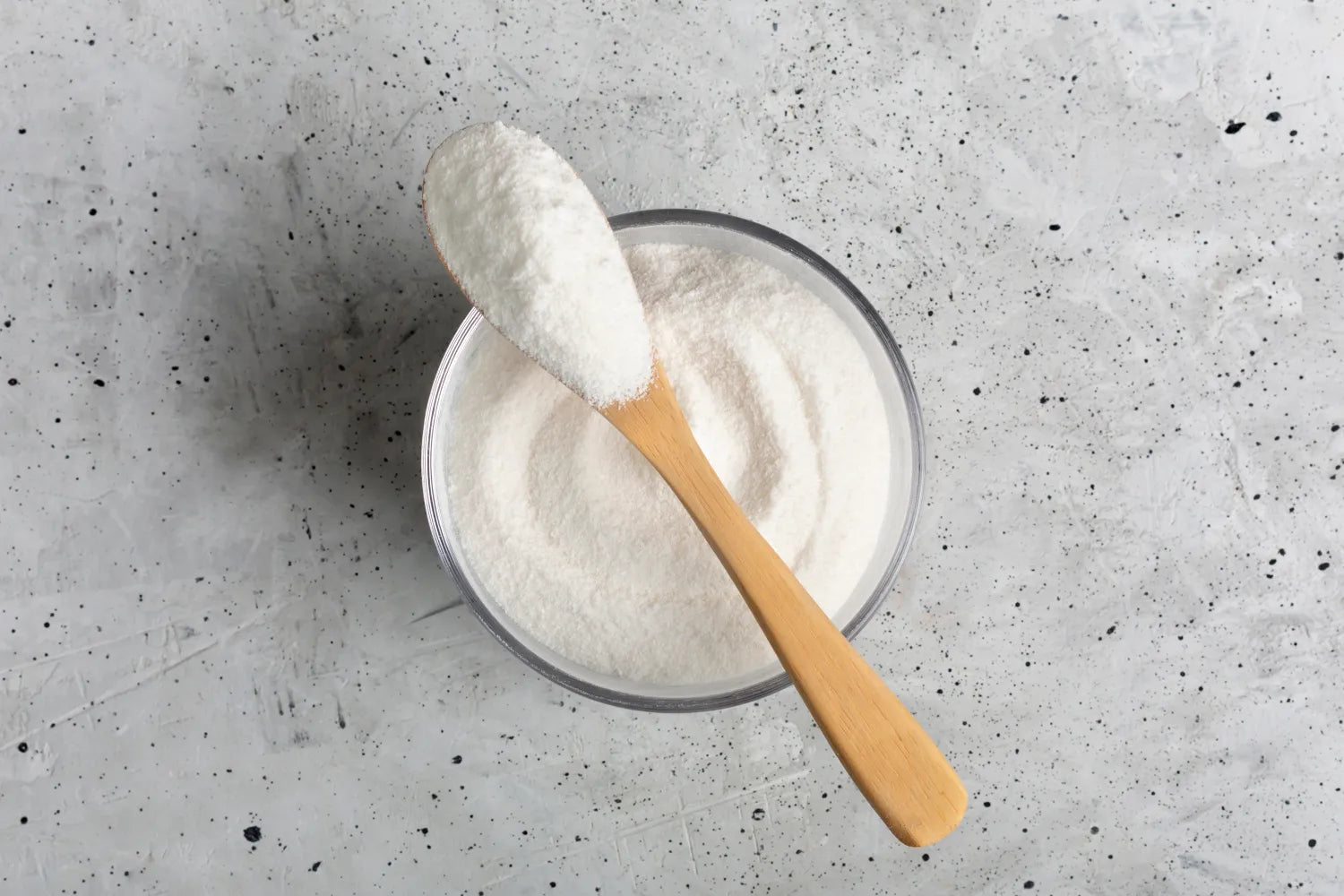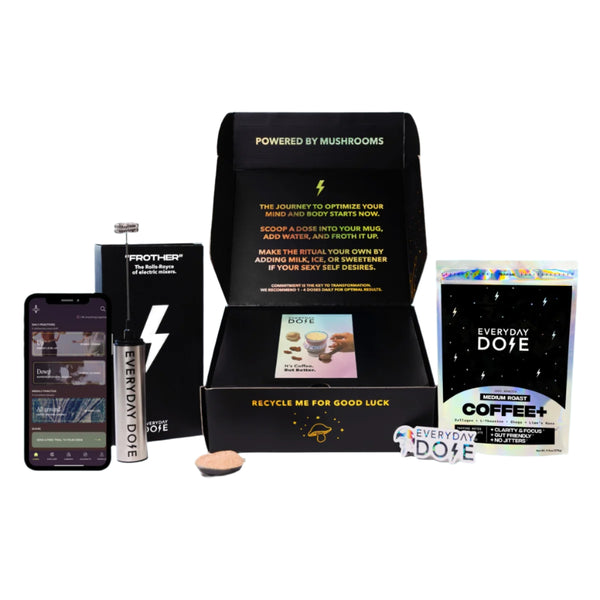Collagen vs. Creatine: What the Science Says

Are you hitting the gym and wanting to maximize your gains? Or, have you finally gotten into a good routine and are looking to increase your performance in the gym? Wherever you’re at in your supplement search, you’ve probably run across two major supplements used by casual gym goers and serious lifters alike: creatine and collagen.
What are the differences between these two supplements, and which is best? We’re here to break them down and help you find a place for them both in your routine.
What Is Collagen?
Collagen is a protein that’s found naturally in the body. In fact, collagen makes up at least 30 percent of your body’s protein mass, making it the most abundant protein in the body.
Collagen can be found in almost every part of the body. For instance, this protein naturally occurs in connective tissues, cartilage, blood vessels, eyes, skin, and even hair.
Our bodies naturally produce collagen, but this production tends to slow down with age. Because of this, many people increase their intake of collagen by either taking supplements or eating collagen-rich foods. These foods include bone broth, bone-in cuts of meat, and meat with the skin on it.
What Does Collagen Do in the Body?
In the body, collagen serves as a structural protein. It gives certain body parts their shapes and helps them maintain that shape even after they’ve been stretched. This is most noticeable in the skin, where collagen plays a major role in skin elasticity.
However, this function does more than just help us look young and wrinkle-free. It also provides a cushion for our joints, supports our gut lining, strengthens the movements of tendons and ligaments, and even helps with muscle function.
What Is Creatine?
Creatine is made up of three different amino acids, but unlike collagen, it’s not a protein in and of itself. Many people in the fitness community take creatine as a supplement, but our bodies actually produce creatine naturally in the liver, pancreas, and kidneys.
If you’re looking to supplement your natural supply of creatine, your first thought might be to use creatine powder — however, you can actually get creatine from plenty of dietary sources. For instance, pretty much any form of lean meat or fish contains a notable amount of creatine.
What Does Creatine Do in the Body?
In the body, creatine is stored in the muscles as well as in the brain. Your body uses this compound primarily for energy, which means that taking creatine supplements can help give you the energy you need to break your PRs and do harder workouts.
Taking creatine can also minimize dehydration, which could help prevent muscle soreness after a workout and encourage muscle recovery. It can also encourage focus and alertness, especially in elderly adults who need a little extra support.
Collagen vs. Creatine: Which Is Better?
So, let’s circle back to the original question. Between collagen and creatine, which should you take?
Ultimately, this is like comparing apples to oranges. Both supplements have very different uses in the body and have different benefits.
Many people actually use both supplements to enhance their gains. The trick is using them both in the right areas of your routine.
Many people take creatine shortly before a workout to help give them energy. With these extra energy stores, many people are able to lift heavier weights, complete more reps, and work out at a higher intensity.
Collagen, on the other hand, is commonly taken after a workout to support muscle recovery and regrowth. Muscles are made from protein, so any protein you take after a workout can help your muscles grow bigger and stronger.
Many people choose collagen as their post-workout protein because it has so many benefits. The benefits of collagen don’t just include muscle growth — it can also encourage healthy joints, glowing skin, and easy digestion.
If you choose to take collagen as your main protein powder, just keep in mind that it’s not a complete protein. However, eating a balanced diet can help fill in the gaps.
How To Take Collagen and Creatine
Collagen and creatine both typically come in powder form, which makes them incredibly versatile. Depending on the formulas, you may be able to enjoy these mixed plainly into milk or water.
However, you can also change things up from time to time. Try mixing your collagen or creatine into a smoothie or shake, or try making collagen protein pancakes or cookies. Because you’ll probably take creatine before a workout, you’ll just want to make sure you don’t mix it into anything too heavy.
Many collagen supplements even feature extra ingredients that can add extra benefits. For instance, our Mushroom Coffee+ blend is made with collagen protein, lion’s mane and chaga mushrooms to support focus and immunity, L-theanine to encourage healthy sleep, and coffee extract to support alertness.
This blend might not have enough collagen to be a bonafide post-workout supplement, but it can work for people who are casual gym goers or anyone who’s simply looking to support their gut or skin health. The best part? Our blend tastes just like a delicious cup of hot coffee.
Wrapping Things Up
Collagen and creatine are both popular supplements in the fitness world, but they both have very different uses. Collagen is used as an after-workout protein powder, while creatine is used before a workout to increase energy and athletic performance.
Collagen is more than just a protein powder, though — it can also support gut health, joint health, and the health of your hair, skin, and nails. To learn more about the ingredients we use and why we chose them, visit the Everyday Dose blog today.
Sources:
Mayo Clinic Q and A: Collagen and biotin supplements | Mayo Clinic
Blog | What are the benefits of collagen? | Reid Health
Creatine Information | Mount Sinai - New York
Protein Powder: The What, Why, & How To Choose | University Health Center
Start your day
The Right Way









